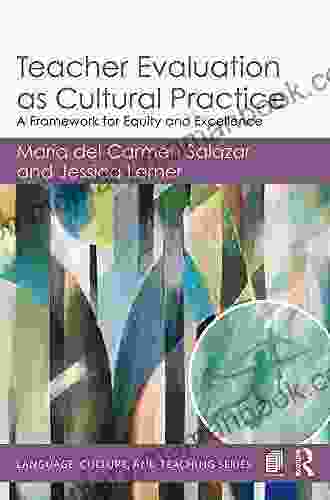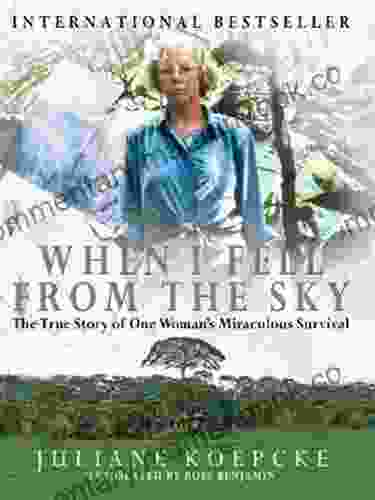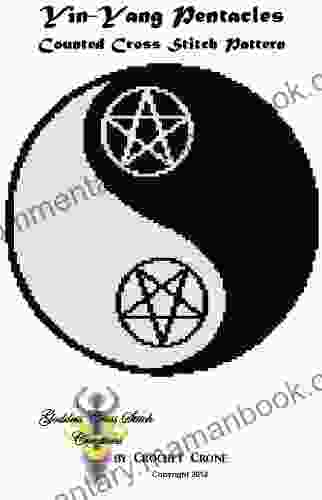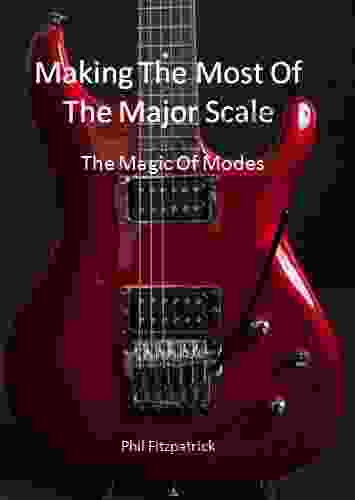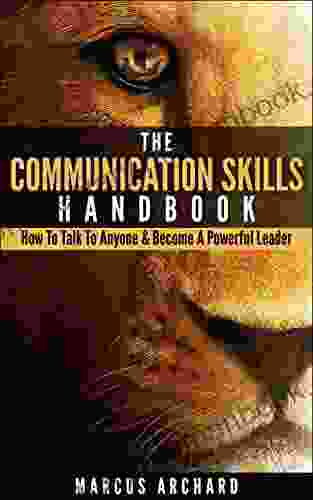Teacher Evaluation As Cultural Practice: Unveiling the Implicit Beliefs and Values Shaping Performance Assessment

Teacher evaluation is a complex and multifaceted process that is essential for ensuring the quality of teaching and learning. However, teacher evaluation is also a cultural practice, and as such, it is shaped by the beliefs and values of those involved.
4.4 out of 5
| Language | : | English |
| File size | : | 3232 KB |
| Text-to-Speech | : | Enabled |
| Screen Reader | : | Supported |
| Enhanced typesetting | : | Enabled |
| Word Wise | : | Enabled |
| Print length | : | 191 pages |
| X-Ray for textbooks | : | Enabled |
In this article, we will explore the ways in which teacher evaluation is a cultural practice. We will begin by discussing the different cultural beliefs and values that can influence teacher evaluation. We will then examine how these beliefs and values can shape the way that teachers are evaluated, and how this can impact the quality of teaching and learning.
Cultural Beliefs and Values That Influence Teacher Evaluation
There are a number of different cultural beliefs and values that can influence teacher evaluation. These beliefs and values can include:
These are just a few of the many cultural beliefs and values that can influence teacher evaluation. It is important to be aware of these beliefs and values, as they can have a significant impact on the way that teachers are evaluated.
How Cultural Beliefs and Values Shape Teacher Evaluation
The cultural beliefs and values that we hold can shape the way that we evaluate teachers in a number of ways. For example, if we believe that teachers should be evaluated based on their students' test scores, then we are likely to use standardized testing in our teacher evaluation system. If we believe that teachers should be evaluated based on their ability to maintain order in their classrooms, then we are likely to use classroom observations in our teacher evaluation system.
The way that we evaluate teachers can also have a significant impact on the quality of teaching and learning. For example, if we use standardized testing as the primary means of evaluating teachers, then teachers are likely to focus their instruction on the content that is covered on the test. This can lead to a narrowing of the curriculum and a decrease in the quality of teaching and learning.
It is important to be aware of the ways in which our cultural beliefs and values can shape teacher evaluation. By being aware of these beliefs and values, we can make more informed decisions about how to evaluate teachers and how to use the results of teacher evaluation to improve the quality of teaching and learning.
Teacher evaluation is a complex and multifaceted process that is shaped by the cultural beliefs and values of those involved. It is important to be aware of these beliefs and values, as they can have a significant impact on the way that teachers are evaluated and on the quality of teaching and learning. By being aware of the cultural beliefs and values that shape teacher evaluation, we can make more informed decisions about how to evaluate teachers and how to use the results of teacher evaluation to improve the quality of teaching and learning.
4.4 out of 5
| Language | : | English |
| File size | : | 3232 KB |
| Text-to-Speech | : | Enabled |
| Screen Reader | : | Supported |
| Enhanced typesetting | : | Enabled |
| Word Wise | : | Enabled |
| Print length | : | 191 pages |
| X-Ray for textbooks | : | Enabled |
Do you want to contribute by writing guest posts on this blog?
Please contact us and send us a resume of previous articles that you have written.
 Top Book
Top Book Novel
Novel Fiction
Fiction Nonfiction
Nonfiction Literature
Literature Paperback
Paperback Hardcover
Hardcover E-book
E-book Audiobook
Audiobook Bestseller
Bestseller Classic
Classic Mystery
Mystery Thriller
Thriller Romance
Romance Fantasy
Fantasy Science Fiction
Science Fiction Biography
Biography Memoir
Memoir Autobiography
Autobiography Poetry
Poetry Drama
Drama Historical Fiction
Historical Fiction Self-help
Self-help Young Adult
Young Adult Childrens Books
Childrens Books Graphic Novel
Graphic Novel Anthology
Anthology Series
Series Encyclopedia
Encyclopedia Reference
Reference Guidebook
Guidebook Textbook
Textbook Workbook
Workbook Journal
Journal Diary
Diary Manuscript
Manuscript Folio
Folio Pulp Fiction
Pulp Fiction Short Stories
Short Stories Fairy Tales
Fairy Tales Fables
Fables Mythology
Mythology Philosophy
Philosophy Religion
Religion Spirituality
Spirituality Essays
Essays Critique
Critique Commentary
Commentary Glossary
Glossary Bibliography
Bibliography Index
Index Table of Contents
Table of Contents Preface
Preface Introduction
Introduction Foreword
Foreword Afterword
Afterword Appendices
Appendices Annotations
Annotations Footnotes
Footnotes Epilogue
Epilogue Prologue
Prologue Heather Cadsby
Heather Cadsby David Bowers
David Bowers Claire Akin Mba
Claire Akin Mba Antjie Krog
Antjie Krog Tyriek Washington
Tyriek Washington Eiichiro Oda
Eiichiro Oda Buddha Dhamma
Buddha Dhamma Mel Bay
Mel Bay Sophia Gallagher
Sophia Gallagher Naomi Lucas
Naomi Lucas Jim Dew
Jim Dew Dionne D Hunter
Dionne D Hunter Sam Gindin
Sam Gindin Mario Vattani
Mario Vattani Robert Kuttner
Robert Kuttner Darren Mitchell
Darren Mitchell Paul Dickson
Paul Dickson Terry Bushey
Terry Bushey Jorge Teillier
Jorge Teillier Jennifer Agostini
Jennifer Agostini
Light bulbAdvertise smarter! Our strategic ad space ensures maximum exposure. Reserve your spot today!
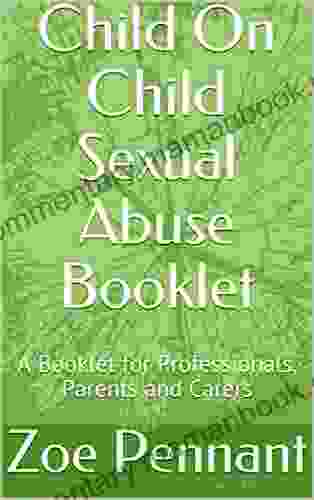
 Ismael HayesA Comprehensive Booklet for Professionals, Parents, and Carers: Supporting...
Ismael HayesA Comprehensive Booklet for Professionals, Parents, and Carers: Supporting... Morris CarterFollow ·3.1k
Morris CarterFollow ·3.1k Forrest BlairFollow ·15.6k
Forrest BlairFollow ·15.6k Brian WestFollow ·13k
Brian WestFollow ·13k Rob FosterFollow ·19.2k
Rob FosterFollow ·19.2k Jared NelsonFollow ·2k
Jared NelsonFollow ·2k Eugene ScottFollow ·3.4k
Eugene ScottFollow ·3.4k Clark CampbellFollow ·6.1k
Clark CampbellFollow ·6.1k Isaias BlairFollow ·2.3k
Isaias BlairFollow ·2.3k
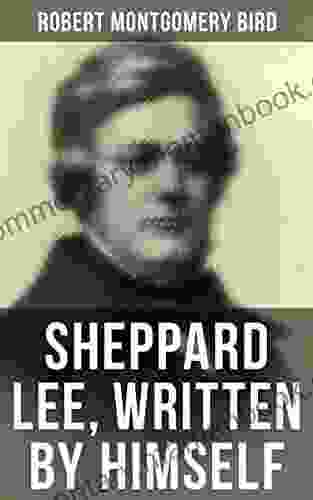
 Kelly Blair
Kelly BlairSheppard Lee Written By Himself: A Journey of...
In the realm of...

 George Bernard Shaw
George Bernard ShawViper Naga Brides: Unveiling the Enthralling Fantasy...
In the realm of...
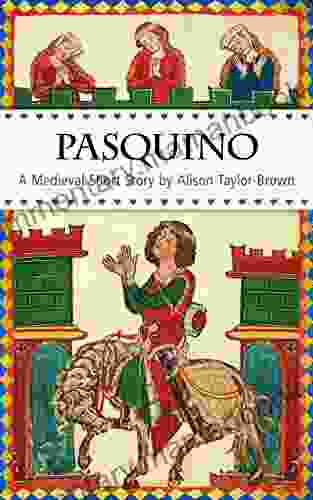
 Neil Gaiman
Neil GaimanOnce Upon a Hill in Tuscany: A Medieval Short Story
In the heart of medieval...
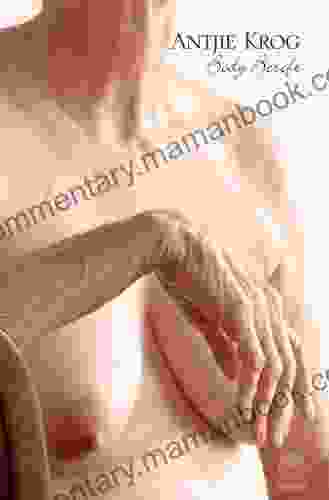
 Preston Simmons
Preston SimmonsBody Bereft: Exploring Loss, Love, and Legacy in Antjie...
A Poetic Requiem for the Lost:...
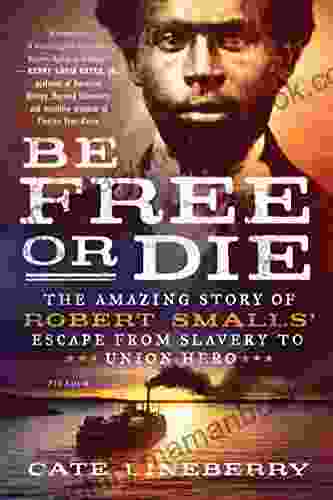
 Percy Bysshe Shelley
Percy Bysshe ShelleyThe Amazing Story Of Robert Smalls Escape From Slavery To...
The life of Robert Smalls is a testament to...
4.4 out of 5
| Language | : | English |
| File size | : | 3232 KB |
| Text-to-Speech | : | Enabled |
| Screen Reader | : | Supported |
| Enhanced typesetting | : | Enabled |
| Word Wise | : | Enabled |
| Print length | : | 191 pages |
| X-Ray for textbooks | : | Enabled |


